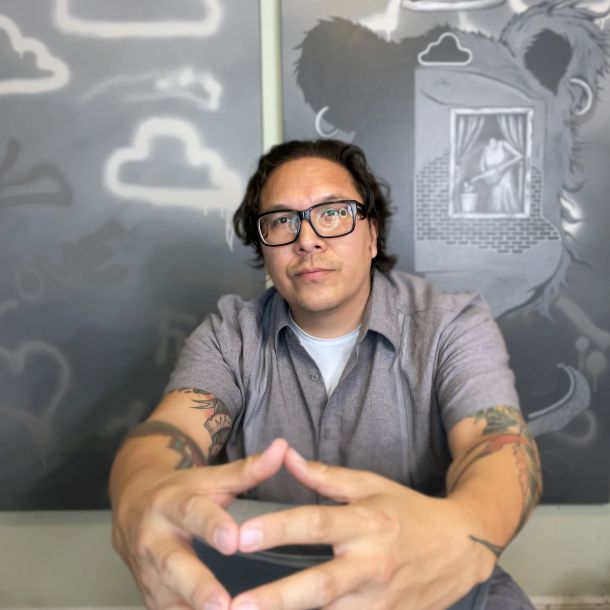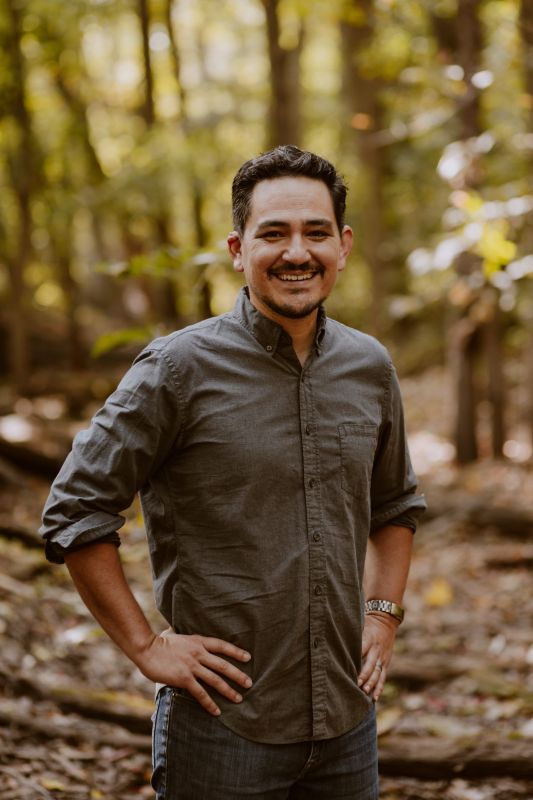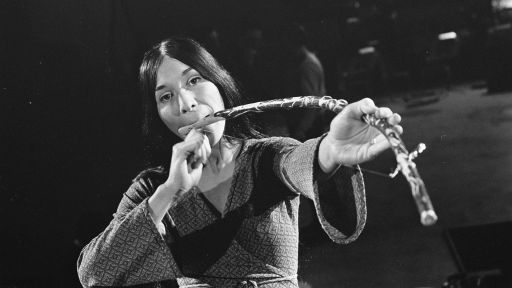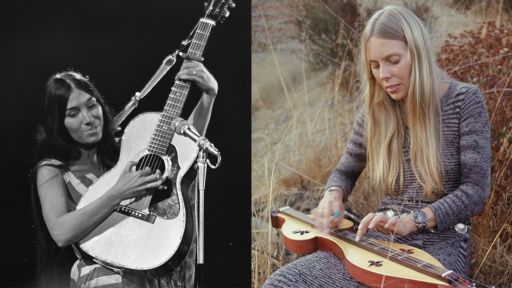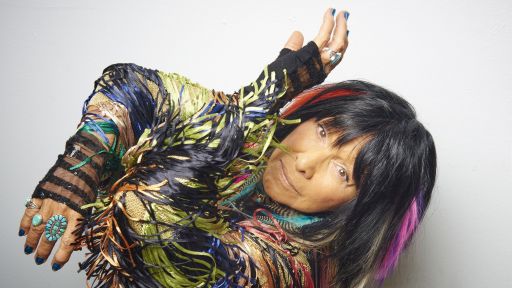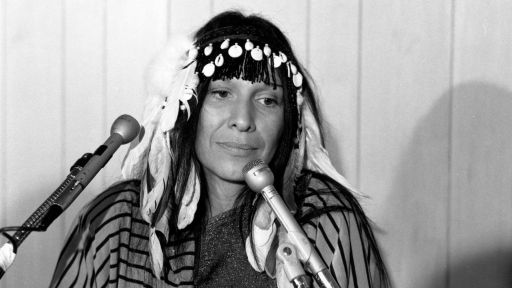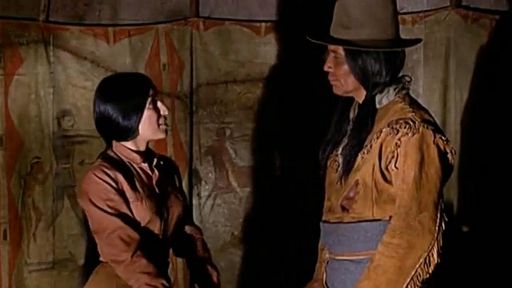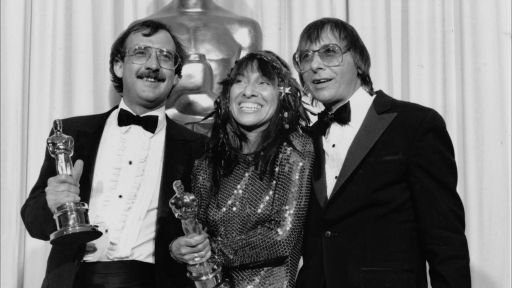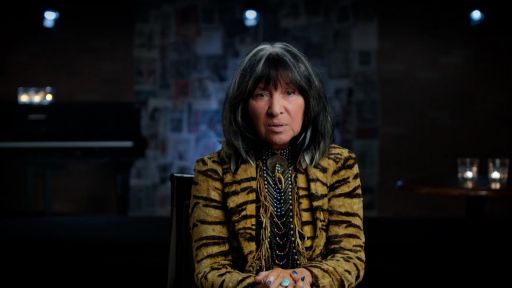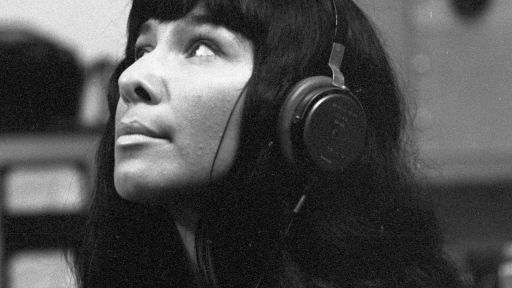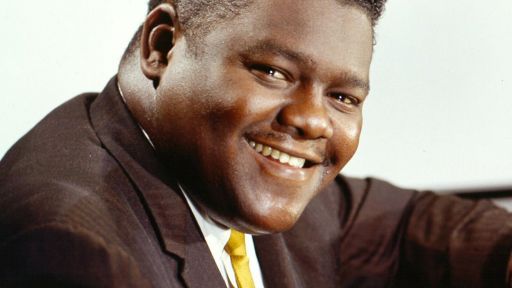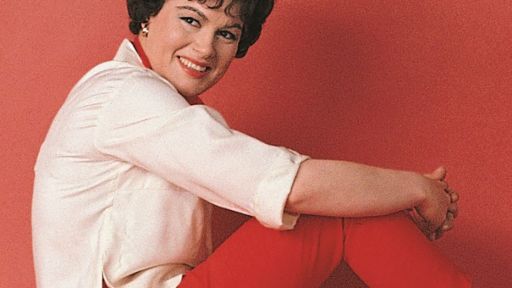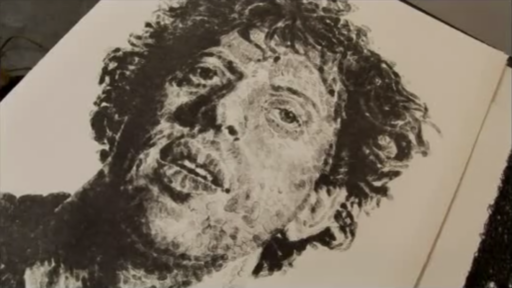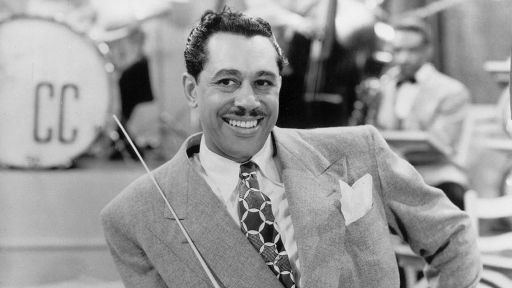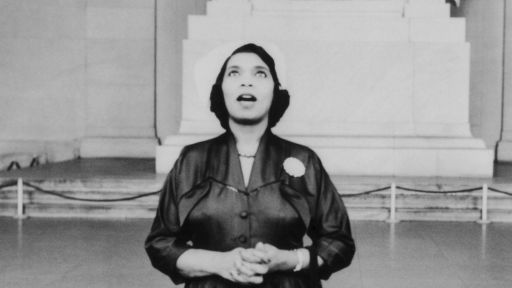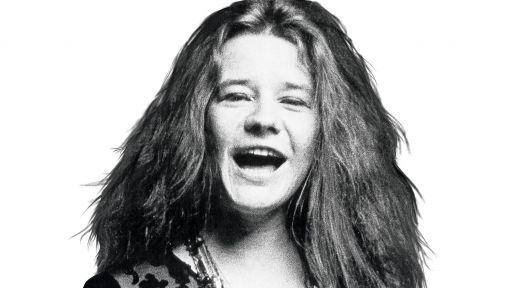ACCESSIBLE TRANSCRIPT [VISUAL DESCRIPTION]
American Masters—Buffy Sainte-Marie: Carry It On
Accessible Transcript – Includes visual description.
[Visual and audio descriptions: Mellow music chimes as the PBS logo appears on screen. Jazzy music begins. On-screen text: American Masters. Buffy Sainte-Marie.]
[White text on black screen, first in Cree, then English. Text reads: “Some will tell you what you really want ain’t on the menu. Don’t believe them. Cook it up yourself and then prepare to serve them.” Buffy Sainte-Marie. Buffy Sainte-Marie is now seen standing in an amphitheater on a sunny day. Concert footage is shown. On screen text: Directed by Madison Thomas.]
Buffy Sainte-Marie: All right. Okay, Jim, this is guitar one, and, uh, this will be our first song.
[Audience applause. Buffy strums “It’s My Way” on guitar.]
Male announcer: Let’s welcome to the stage Buffy Sainte-Marie.
[Cheers and applause]
-♪ I’m cutting my own way ♪
♪ Through my own day ♪
♪ And I dare say ♪
♪ Is it’s my own ♪
Taj Mahal: She was always way ahead of the game. She knew she had a gift, and she was not afraid to share it, show it, be proud of it. When she played, it was hers.
[Photos and videos of Buffy on stage throughout the years appear on screen.]
-♪ The years I’ve known ♪
♪ And the life I’ve grown ♪
♪ Got a way I’m going ♪
♪ And it’s my way ♪
David McLeod: She’s an icon, she’s a six-time Juno winner, a trailblazer, an Academy Award winner, a Companion to the Order of Canada. All of those things come to mind, but they’re not strong enough to actually define who Buffy Sainte-Marie is.
-♪ Sword in my own hand ♪
♪ I got my own plan that only I can know ♪
♪ Don’t be… ♪
Alanis Obomsawin: When you’re told generation after generation that you’re ugly, you’re dirty, you’re a savage, you don’t belong, Buffy comes along, tells you something very different.
[Video montage continues of Buffy accepting awards and working with children.]
-♪ I got my own world ♪
♪ I got my own life ♪
Woman’s voice: She’s such an amazing, well-rounded human being, and that comes through in everything that she does.
-♪ I got my own kith ♪
Joni Mitchell: Oh, I was very impressed with her. Her stage performance and her songwriting ability — Buffy was different.
Sonia Manzano: Buffy is the boldest woman I know in a quiet and compassionate way.
-♪ I got my own tears and it’s my way ♪
Andrea Warner: Places that Buffy has been erased from — well, I mean, it’s all of them, particularly the mainstream music industry.
[Article titles on screen: How Buffy Slapped Dick Nixon Down. Buffy Sainte-Marie: blacklisted, alienated, yet persevered. Buffy Sainte-Marie on a rollercoaster career that even the FBI kept an eye on.]
-♪ The years I’ve known ♪
♪ And the life I’ve grown ♪
Woman’s voice: I’m so grateful for the work that Buffy has done to bring attention to missing and murdered Indigenous women and making sure that people are aware of what’s going on so that we can do something about it.
-♪ Put down the story ♪
David: Throughout her career, she’s always at the cutting edge, and her songs encapsulate all of time — drawing on the past, speaking now, and sending it into the future.
-♪ You’re bound for glory ♪
♪ All on your own one day ♪
Robbie Robertson: They only made one Buffy Sainte-Marie, I can tell you.
[Song concludes. Audience cheers for Buffy. Text on screen: Buffy Sainte-Marie: Carry It On. New scene, lush greenery in Hawai’i. Birds chirp. Buffy is seen walking through a lush blooming forest. She is now in center screen.
Buffy: I’ve lived in Hawaii in a real obscure place in the mountains of the middle of nowhere with a bunch of goats and my sweetheart. And it’s funny — I have a lot of confidence in solitude. And I think that’s what’s allowed me to enjoy music for so long. Songs are like snapshots of your life. I write about everything. Oh, here’s some more Hawaii ones. Ooh, this one’s kind of nice.
[Buffy plays a down-tempo tune on piano. Text on screen: #AmericanMastersPBS.]
You know, I love show business, but I really do need the other side of that. I’m kind of not surprised to be 80 years old and have things where they are right now for me professionally.
♪ Little boys tap dancing in the Quarter streets ♪
♪ Of New Orleans, yeah ♪
I found out somewhere along the way — I can’t tell you what year it was or where I was in my journey, but at a certain point I realized that what I was doing at that time, the timing was off.
♪ Put on some high-heeled shoes, go out on the town ♪
In the early ’60s, you know, people would just be flabbergasted that I would dare to use the word “genocide” regarding the North American Holocaust. And it took another over 50 years before truth and reconciliation brought the facts to light, and it vindicated my music.
[Photo montage is shown over piano instrumentals.]
I learned that sometimes you have to carry the medicine for a long time before it’s time to administer it.
[A new piano tune begins, longing.]
As a child, you know, I was told two things that kind of should have ruined me. And the two things are, “You can’t be a musician — you can’t read music.” [Chuckles] You cannot tell me I can’t be a musician just because you don’t recognize natural music. And the other thing that I was told is, “You can’t be an Indian. There aren’t any more. Oh, there may be a few in Arizona, but, no, there aren’t any around here. So you must not be one. And they were all dead and vanished anyway.” From a real young age, I was dealing with other people’s ignorance about things I really cared about, people I loved who just didn’t know the facts about Indigenous people or natural musicians. I knew things intimately from daily experience that never even crossed their minds. Things like that probably should have ruined me, but they did not, because I knew so definitely that the world sometimes is either wrong or they’re not there yet.
[Up-tempo music plays, a television intro in front of a studio audience.]
TV Announcer: Tonight from Toronto, the music of the inimitable Buffy Sainte-Marie.
[Applause]
Talk Show Host: Buffy Sainte-Marie joins me. I read a quote that you said the town you were brought up in Maine was Javex City, USA, and then they tried to turn you white. [Laughter, a bottle of Javex bleach is shown on screen.] Is that a misquotation?
Buffy: No, I said. [Laughs]
[Marching band playing in an older clip of a military parade.]
Buffy: I grew up in Maine and Massachusetts, you know, in places where there weren’t any Indians. They didn’t believe in Indians. They thought we were either all dead and stuffed in museums or never had existed in the first place because they had wiped out their Indians in the 1600s. And then I go back to school and they try to tell me Columbus discovered America, right?
Talk Show Host: Yeah.
Buffy: And I knew darn well, right, what had happened, yeah? [Laughter] We know — We know how it really happened. You know, like in 1492 on October 12th, you know, that’s when the Native North American people discovered Columbus. He was lost. He thought he was in India, poor thing. [Laughter, applause]
[Still shot of Qu’Appelle Valley, Saskatchewan, Canada. Footage of a young girl riding a bike.]
I’m an adopted child, and I was born in Canada and grew up in Massachusetts and Maine. And I didn’t play with the other kids in games. I really felt like an observer. There was only one Indigenous person besides me in the town. He was the mailman, [chuckles] and he also had a trading post and he used to do beautiful beadwork for the movies. I’d ride my bike about four miles around the lake and go and visit with them. And, you know, he was about the only one I could talk to. My mom — she didn’t know that it bothered me that I didn’t know what kind of Indian, or if I couldn’t be one, what was I? So she — what she said to me was, “When you grow up, you can find out for yourself. And that’s pretty darn good.” So I did.
[Black and white footage plays of a Greyhound bus driving down a road. City skyline. New York City, 1963.]
[“Better to Find Out for Yourself” plays]
♪ Take it from me that a man can be ♪
♪ More trouble than you’ll ever know ♪
♪ He’ll love you some ♪
At the beginning, I never thought I would have a career. I didn’t think I was a singer or anything. I was a very good singer, but I knew I was a writer. I knew I was a songwriter. So I went to Greenwich Village to try my luck at singing in the coffeehouses of the time.
♪ Better to find out for yourself ♪
♪ Handsome stride and shoulders wide ♪
When I arrived, it was kind of just at the end of the beatniks. Nobody had heard of a hippie yet.
♪ With his head hung low and his shoulders down ♪
There were many artists called folk singers who were doing different things — Odetta, Pete Seeger, Bob Dylan was still playing in the Village. And it was all mixed up, and it was so exciting.
[Horns honking, still shot of a brightly lit New York City street.]
Joni Mitchell, Singer, Songwriter, Artist: The first time I went there, I was stunned because, you know, New York, you always see people in luxurious penthouses, in the movies, you know. When I got to New York, it was garbage in the streets and it was so funky. I was really amazed, you know?
Taj Mahal, Blues Musician, Singer, Songwriter, Multi-instrumentalist: Oh, there was a lot of people. Oh, it was happening. New York was happening. The Village was — it was — it was smokin’. And Buffy — things started moving for her.
Buffy: I think the first place I probably went to was Gerde’s Folk City. I met Bob Dylan there. He heard me play. He liked it.
♪ Little wheel spin and spin ♪
♪ Big wheel turn around and around ♪
He said, “You know, go and see Sam at the Gaslight Cafe.” So I went over and very, very quickly — like, probably within a week or two — the journalist from “The New York Times,” Robert Shelton, came down and he gave me a review, [laughing] a spectacular review.
[Newspaper clip: “…one of the most promising new talents on the folk scene…a throaty sensual voice that moves with surety…”]
♪ And the devil’s in hell ♪
♪ Hearts, they shrink, buckets swell ♪
And the people at the Gaslight Coffeehouse — they blew it up into a huge vertical billboard and put it outside the club. And the place was just full of people.
♪ Blame the angels, blame the fates ♪
♪ Blame the Jews or your sister Kate ♪
Joni: Oh, I was very impressed with her. I was always amazed that she could stand on one foot with her leg cocked up and sing and never bang her nose on the microphone. [Laughs]
-♪ Big wheel turn around and around ♪
Andrea: Then “Time” magazine also called her “one of the most intriguing new talents to emerge in many a moon.” It was just like a very kind of over-the-top quote, but the kind that gets you all the attention. And those positive reviews had record labels knocking on her door.
[Cheers and applause from an engaged crown. Slide projector clicks and whirs. New still photo, a house on a lake in Maine, USA. Interview footage from Hit Scene, ABC Australia. November 16, 1972.]
Talk Show Host: Buffy, there are so many facets to your particular diamond. It’s hard to know exactly where to start, but I think we’ll confine ourselves to the musical topic. When did you begin to be aware that you were musically inclined?
Buffy: Well, the first time I saw an instrument was when I was four, when my parents brought a piano to the house. They had somebody’s old beat-up piano that was given to them. And I sat down and began to play with it, which is what I think children should do with music. I played with it as a toy. And within a couple of days, I was playing my own music. I was an isolated child. And so music, for me, was my playmate. It was my big playmate.
[Touching piano music begins.]
Anything I heard on the radio, I could play it on the piano. You know, you play Tchaikovsky or Mozart on a record, and I could sit down and, you know, come up with the chords and… [Laughs]
[Bells tolling, University of Massachusetts.]
I felt a real freedom in college. I got a single room in a dorm, and my housemother was British and she appreciated my music. And I used to sing to the girls in the dorm. And I discovered philosophy as a sophomore. And so that’s how I wound up with a philosophy major, with a teaching minor.
Taj: The time that I was going to the University of Massachusetts was when I met a lovely sister, Buffy.
Buffy: Taj saw me, he says, coming out of this listening library. We went and put on actual headphones.
Taj: She had a big coat and a book bag and a guitar, and so I helped her — I helped her up the stairs with the book bag.
Buffy: And he told me he was intimidated [laughs], which is really, really a laugh. He’s huge, you know, and I’m… [Buffy gestures that she is much shorter.]
Taj: But, and she said, “Have you got a guitar here?” And I said, “Yeah.” So I go get my guitar, and we sit down in this — in this hallway, and one of us strums an “E” chord and one strums a “D” chord. And we’re absolutely in tune in two different keys. That’s serious. Okay, so I knew I had a friend.
[Reenacted footage of two young students playing guitar together. Text on screen: #AmericanMastersPBS.]
– ♪ Can you remember the times ♪
♪ That you have held your head high? ♪
Taj: Buffy really was pretty — she was representing and deeply committed to Indigenous people and Indigenous rights.
– ♪ Oh, it’s all in the past, you can say ♪
♪ But it’s still going on here today ♪
Taj: She was, like, pretty much the first person that I knew that was, like, speaking it out, and I still — I can see it while I’m talking to you. I can see Buffy standing in the doorway, and the guitar was tilted up and she was throwing down.
-♪ Now that the buffalo’s gone ♪
Taj: She was who she was. No two ways about it.
Buffy: When I went to sign my record contract with Vanguard, you know, Blue Note was interested in me, too, and they were a jazz label. When I signed with Vanguard and the day I went up there, they said, “Okay, well, you know, where’s your lawyer?” And I said, “I don’t have one of those.” And they said, “Oh, that’s okay. You can use ours.” [Chuckles] So I signed up for seven years.
[Photo of Buffy with Vanguard Music Executives. Album cover: ‘It’s my way!’ by Buffy Sainte-Marie. A newspaper title: Buffy Sainte-Marie Gives Out With Swinging Poetry.]
♪ I’m cutting my own way ♪
♪ Through my own day ♪
Jackson Browne, Musician, Singer-Songwriter, Activist: Those first albums starting out, there was this, you know, really powerful female voice, you know, Indian voice, you know, having understood that the history was a lot deeper than anything had been presented to us and that folk music contained this, too.
[Applause, a montage of old footage of Buffy making various television appearances.]
Male Announcer: We’d like to present to you this very gifted young lady, Buffy Sainte-Marie.
Male Announcer: Buffy Sainte-Marie.
Male Announcer: Buffy Sainte-Marie.
Talk Show Host: Oh, Buffy’s the hottest — excuse the expression – the hottest singer right now.
Taj: She was on the cover of “Broadside” magazine. And you couldn’t miss her. I mean, really, you weren’t, you very much alive if you miss her cover.
John Kay, Lead Signer-Songwriter, Steppenwolf Solo Artist: Buffy’s first album — well, it just floored me because “It’s My Way” that song itself, which was sort of, “take it or leave it, this is who I am, this is my way,” you know, I was just really astounded by the intensity and the passion. And you realize that those young singer-songwriters — they reflected the concerns we had.
-♪ Freedom! Freedom! ♪
♪ Freedom, freedom ♪
Taj: All the music was the soundtrack of that whole time. It’s like what was on our minds was being — was coming back to us through music. And, you know, Buffy’s stuff, like, cut right through it.
Alanis Obomsawin, Filmmaker, Producer, Singer, Artist, Activist: She was already a young woman with so much power and so much, um… history. Such a young person, how she understood life, how she understood what was happening in the world, not just for us, but for… war, for where we were at.
[Impactful chords ring over photos of Buffy and black and white footage of soldiers.]
Buffy: I had to spend the night in San Francisco Airport because I was trying to get to Toronto. And in the middle of the night, a group of medics came in and they were wheeling wounded soldiers. And I got to talking to one of the medics, and they explained to me that, yes, indeed, there’s a horrible war going on in Vietnam, because we were being told that there was no war. And I just got to thinking, “Who is it who’s responsible for war?”
♪ He’s 5-foot-2 ♪
♪ And he’s 6-feet-4 ♪
Is it these poor, wounded soldiers who, you know, they’re lying there and, in a way, there’s some responsibility right there.
♪ He’s only 31 and he’s only 17 ♪
♪ He’s been a soldier for a thousand years ♪
Then I got to thinking, “But what about career military officers who spend their whole lives learning how to make war better?”
♪ He says it’s for the peace of all ♪
So there’s some responsibility there, I’m thinking.
♪ Must decide who’s to live and who’s to die ♪
♪ And he never sees the writing on the wall ♪
But who is it who actually makes the phone call to actually start a war? And now I thought I had it. Oh, let’s blame the politicians.
♪ But without him, how would Hitler have condemned him ♪
♪ At Dachau? ♪
But in this world that we’re living in, in North America, who is it who elects the politicians? It’s us. It’s you and me. It’s about individual responsibility for the world we’re living in.
He’s universal soldier.
♪ The universal soldier ♪
And he really is to blame.
♪ And he really is to blame ♪
But his orders come from far away no more.
♪ No more ♪
♪ This is not the way we put an end to war ♪
I got into Toronto. I finished the song up at the Purple Onion, and I performed “Universal Soldier” that same night, and that song had — it just had an immediate effect.
[Universal Soldier cover by Donovan. BBC, 1965.]
-♪ He’s 5-foot-2 and he’s 6-feet-4 ♪
Buffy: And people started — other artists started singing it, too. You know, it became pretty well-known quite fast.
-♪ He’s only 31 and he’s only 17 ♪
Talk Show Host: Do you get great pleasure in hearing other people perform your songs? Because they are such a personal part of you, aren’t they?
Buffy: Well, yeah, I do. I mean, I’m flattered, you know? And the way I feel about songs is that once I’ve sung them, then it doesn’t do to keep your hands on it and try to hold it back. You have to let people have it and do what they want with the song.
Joni: In the beginning, that was my favorite of her songs. Then later I played in Fort Bragg, you know, for the soldiers coming back from the war. And then I ended up with a different opinion, you know. “He’s the universal soldier. He really is to blame.” I thought, you know, it’s a shame these guys are coming back from the war to encounter such hostility. I began to kind of disagree with the premise of the song.
[Tense instrumentals over black and white footage of military and civilians.]
Buffy: “Universal Soldier” was always about our collective responsibility for war. It’s not just the military. It’s all of us.
Robbie Robertson, Lead Guitarist and Songwriter for The Band, Solo Artist: When I hooked up with Bob Dylan, he said, “Oh, man, you gotta hear Buffy Sainte-Marie.” And he went over to the record collection there, and he pulled out an album and it had “Universal Soldier” and “Cod’ine” on it. And “Cod’ine,” I thought, “Whoa,” you know, “Codeine?” You know, and in Canada, codeine was available in drugstores. I mean, you could just buy it like people buy aspirins, the 222s, and, uh… and I guess, you know, there was this certain naivete that they didn’t realize it could be dangerous and very addictive.
♪ My belly is craving ♪
♪ I got a shaking in my head ♪
♪ Feel like I’m dying ♪
♪ And I wish I was dead ♪
Buffy: I found out the hard way very young about opioids and doctors, you know. I mean, I was in my early 20s and a doctor, you know, overprescribed me opiates.
♪ But I’ll real and I’ll fall ♪
I had a bronchial infection, and a doctor in Florida gave me shots and pills that I thought were vitamin B12 and antibiotics. Well, a few weeks later, I was driving through Atlanta with some friends, and I was feeling worse than ever. I stopped at a drugstore to get a refill. The pharmacist looked at the prescription, and he told me he didn’t think my problem was bronchitis at all. He said I was strung out and going through opiate withdrawal, and it was gonna get a whole lot worse. And, of course, he wouldn’t refill the codeine prescription. I was stoned. This Florida doctor had prescribed me huge amounts of codeine, which is like opium, morphine, heroin, and I went through withdrawal. It’s unimaginable how.
♪ But I’ll real and I’ll fall ♪
♪ And I’ll die on cod’ine ♪
But see, I learned a lesson. Some things are bigger than me. And I’m afraid of things that are bigger than me.
[Brief footage of Buffy performing and pills being placed into a pill holder.]
Andrea Warner, Author, Buffy Sainte-Marie: The Authorized Biography: The song was written in 1964, and we’ve been in a, you know, opioid crisis for the last ten years, if not longer. So I think it really shows just how much Buffy was ahead of her time.
Logan Staats, Singer, Songwriter, Activist: I’ve always really connected with her song “Cod’ine,” being displaced from my own community. Drugs and alcohol and addiction and mental health is something that I struggled with for a long, long time, you know? And it’s a fight that I’m still fighting today and I fight every day. You know, and having that song “Cod’ine” is almost like, you know, it’s this moment where Buffy’s speaking about these issues directly. So it’s like, that just meant a lot to me to kind of relate to her on that level.
[“Born to be Wild” plays in black and white footage, montage of pandemonium from fans.]
-♪ Get your motor running ♪
♪ Head out on the highway ♪
Buffy: I really did see a seismic shift in the ’60s in the music business. All of a sudden there’s big money there, right?
[Screaming from fans as The Beatles walk through a crowd.]
-♪ Gonna make it happen ♪
♪ Take the world in… ♪
Buffy: Show business changed. The drug went from coffee and a little pot to alcohol and a little cocaine, and a lot of coffeehouses went out of business. They couldn’t compete. It just went from a time of innocence to a time of, “Goose it. Here’s where the money is.”
-♪ Fire all of the guns at once ♪
♪ And explode into space ♪
Woman: These managers and record companies realized that they could make a lot of money. So they created a model that maximized profit. But it was all at the expense of artistic expression.
-♪ I never wanna die ♪
[Cheers and applause. Footage and stills of Top 100 hits. A title reads: 1963 ends a big money-maker. 1964 starts a sure record-breaker.]
George Stroumboulopoulos, Music Journalist, Activist, Actor: From when Buffy’s first record came out, I mean, Elvis had only been on the radio for, what, eight years? Like rock ‘n’ roll was, by the industry standards, brand new. It was brand-new. So they could have built it right. They just chose money and chart position. Fine. You’re allowed to do that. But let’s not pretend that’s not what you did.
[Black and white footage of a rolling record player. Glimpses of Buffy from the time period in black and white.]
Man 1: Go! Roll sound! Quiet!
Man 2: Let’s go. Somebody count it.
Buffy: In those days, you didn’t have any power. The record company had all the power.
Man: Okay, let’s — let’s make one more, please.
Buffy: I would go in to record and, you know, there’d be a bunch of guys I had never met, you know, adult businessmen and, you know, an engineer and nobody I knew. And I’d start singing. And then I left. And then the album came out. So I had nothing to do with choosing which take or pointing out what was right or wrong. I just didn’t have control over my own music, and I wish that I had had.
Man 1: How was that? Was that cool?
Man 2: Yeah. Right.
Buffy: After seeing the pressure Vanguard put on me, Joni decided against signing with them.
Joni: Yeah, they wanted me to deliver a ridiculous number of albums per year, you know, and writing your own music — like the workload was, it was impossible. I turned them down.
Taj: I have no interest in politics, nor office, no nothing. I wanted to play music and I wanted to get it out to people. Of course, the industry tried to, you know, cash in on it, but, you know, really, that’s their job. And our problem is that they give us the playbook, and we’re reading the playbook and then they’re playing dirty. [Chuckles]
[Electric guitar wails over footage of New York City.]
Buffy: When I arrived in Greenwich Village, I had never met a businessman. I had never met a lawyer. I didn’t drink, and an awful lot of stars started going down to drugs and alcohol.
-♪ You know I smoked a lot of grass ♪
♪ Oh, Lord, I popped a lot of pills ♪
Buffy: The big managers and lawyers, they were all into it. [Laughing] They were into it.
-♪ But I’ve never touched nothing ♪
Buffy: But when you don’t drink in show business, that means that after the show you don’t go out to the bars, which is a very bad move in show business because that’s where you make deals. And I wasn’t there.
-♪ Stones in their eyes ♪
Buffy: So I really wasn’t very good [laughs] at faking it socially. I didn’t — I just didn’t know how. So I made some mistakes. Because I was so green, people took advantage. I wanted the message of “Universal Soldier” to spread. The Highwaymen were a vocal group coming off a huge hit, “Michael (Row the Boat Ashore).” One night they came to the Gaslight. They heard me sing “Universal Soldier” and told me they wanted to record it immediately. And they asked me, who was the publisher? My manager, Herb Garr, knew this guy at the next table, Elmer Jared Gordon, who said he was a publisher. And so I signed away the publishing rights to him for $1. And then later people started crediting the song to Donovan. I made a lot of that kind of career mistake, and I was kind of a social boob in that way. But the rights to “Universal Soldier” — it took me ten years, but I bought it back. I bought part of the publishing back for $25,000 it cost me to buy back part of my own song.
[Groovy rock music plays over continued footage of New York and photos of a young Buffy.]
But I never did it again. I learned my lesson. I learned not to do that.
George: I think the people who think Buffy made terrible career moves are looking at it from an industry perspective, and that their only way of assigning the successful tag is if you do it this way. Did she make the right career moves to play that capitalist game? No, but I bet she knew that. I bet those people who say that about her now — “Oh, she should have done this” — well, where were you? Well, where were you?
[Rock music ends. New scene, a lush green farm with roaming chickens and a goat. Birds chirp and animals call in the distance. Buffy flips through a stack of papers in her home.]
Buffy: Wow. We got a lot of letters here. [Laughs] Oh, man, they were — people were scolding Smithsonian for not knowing that “Universal Soldier” was actually a song. A couple years ago, the “Smithsonian” — they had done a story on Vietnam veterans, like, the carvings on their bunks. And someone had written a quote from “Universal Soldier,” and the “Smithsonian” didn’t realize I had written it. [Laughing] And so it came out in “Smithsonian” magazine that it was written by an unknown soldier writer. And they said that they had been flooded with more letters that they ever had in the history of their magazine — letters letting them know it was not an unknown person who had written those lines. Most of them said it was me. It was Buffy who wrote those lines. But a lot of them said it was Donovan. [Laughs] Let’s see. “Dear Editor, the free-verse poetry attributed to Robert Simpson in 1967 was actually taken from none other than the 1960s-era folk singer Donovan.” Boo! [Laughs] Wrong. Um… Oh, here’s somebody who knew I wrote it. Yes! “Was actually written by Cree folk singer Buffy Sainte-Marie as part of her war protest song, ‘The Universal Soldier.'” Yes. Thank you. Thank you. Thank you. Thank you, Roger Jacobs. [Laughs] [Motor running]
[Text on screen: Studs Terkel Radio Interview, 1968.]
Radio Host: Are you aware there’s a very strong “back to the land” movement that a great many people are interested in the decentralization?
Buffy: Mm-hmm.
Radio Host: In contrast to the increasing problems of urban life, here are you, a country girl, really.
Buffy: [Laughs] Why, yes, I am really at height. You see, I’m very close to this way of life that’s different from the city way of life. I find I get very rattled and I don’t produce anything in my own mind.
Even now, being on the road with a band is hard. But when I first started, I was always by myself, traveling in Europe and Australia and Asia with all these suitcases and guitars and no helpers. Ah! You know, I was in show business all of a sudden and then, “Oh, how do I get out?” Everybody else trying to, “How do I get into show business?” I was trying to get out. And so I had a concert in Honolulu, the only one I ever did [chuckles], and I asked the travel agent, I said, “I want to go early.” I wanted to get out of L.A. “Where should I go?” And she sent me to this island that nobody cared about. And I bought my place four days later.
[Upbeat guitar music begins.]
Taj: Everywhere went, like, “What?!” I mean, I-I always hold my judgment. What do I know? What do I know? And we were so wrong. Hey, she knew what time it was.
[Buffy is seen tending to her animals and walking through the forest.]
-♪ I live on a farm in the middle of nowhere ♪
♪ In the country, you could say ♪
♪ The one I love, he loves me ♪
♪ He love, he love, he loves me ♪
♪ Ooh, it’s a beautiful day where I come from ♪
Buffy: Everybody said, “That’s the worst career move you could make.” You know, that’s okay.
♪ Top of the world, nowhere town ♪
♪ I fell in love and then I settled down ♪
I was never strategic about building a career. So I’m kind of pulled back from what everybody else was doing.
♪ I’m in the middle of nowhere ♪
♪ It’s where I come from ♪
[Buffy strums a guitar tune.]
“Until It’s Time for You to Go” is, um… I don’t know. It just popped into my head. You know, I had a crush on somebody, for sure.
♪ You’re not a dream ♪
♪ You’re not an angel ♪
♪ You’re a man ♪
♪ And I’m not a queen ♪
♪ I’m a woman ♪
♪ Take my hand ♪
♪ We’ll make a space in the lives that we planned ♪
♪ And here we’ll stay ♪
♪ Until it’s time for you to go ♪
What I wanted to offer when I was first starting out, to this day, is I always want to be offering people stuff that they won’t get somewhere else.
♪ We laughed and played at the start ♪
♪ Like in a game ♪
And this song was saying, “This is so wonderful. And, you know, we’ll make it happen until it’s time for you to go.” And it doesn’t say why you have to go, but it allows — it allows your loved one to leave the room.
♪ Don’t ask forever ♪
♪ Love me now ♪
Andrea: I think it is the actual first feminist anthem. It’s sung from the perspective of a woman who is basically like, “We will love each other right now, and we’re not asking for forever.”
-♪ And I’ll never ♪
That’s not the kind of messaging we were hearing from women’s perspectives in pop music.
-♪ Until it’s time for you to go ♪
John: The way she performs it and the mood that is expressed, there’s just an honesty in it.
-♪ See you again ♪
♪ Still I’ll stay until it’s time for you to go ♪
Man: Hold it.
Buffy: I’m in Nashville, and I’m recording, and the phone rings, and it’s this associate of Elvis’s business people. His name’s Furlan, so… “Hi, Furlan. How you doing?” “Buffy, Elvis just recorded your song. We’re gonna have to have some of that publishing money, honey.” [Laughs] So I said, “Oh! No.” No. I said no. No. This — This was Elvis recording my song. I was genuinely flattered, thrilled, and grateful. But, no, he didn’t write the song. I did. And having given away the publishing for “Universal Soldier” for $1, I didn’t want to do that again.
[Elvis performing]
-♪ We laughed and played at the start ♪
♪ Like in a game ♪
Buffy: Elvis recorded that song nine times.
-♪ You could have stayed outside my heart ♪
Because my little song was apparently Elvis and his wife, Priscilla’s, love song together.
[Photo montage of celebrities Buffy mentions.]
Oh, gosh, A lot of people have recorded that song. Barbra Streisand, Francoise Hardy, Sonny and Cher. Cher by herself. [Chuckles] A lot of wonderful people. I’m very happy that that song arrived in my head, not somebody else’s.
[Buffy performs. Text on screen reads: Buffy’s ‘Until It’s Time For You to Go’ has been covered 157 times since its original release in 1965. Black and white photos from Toronto, Canada.]
♪ And here we’ll stay until it’s time ♪
♪ For you to go ♪
♪ Mm, mm, mm, mm ♪
In the early ’60s, I’d go to Toronto to play in Yorkville, and I hung out at the Friendship Center on Spadina. I made some friends and mentioned my adoption story and they suggested I come to this powwow at Wiikwemkoong Reserve on Manitoulin Island the next weekend. And to that powwow came a group of Crees, and Emile Piapot was one of them, and we just enjoyed our conversations and enjoyed each other’s presence. And he invited me to come to the Reserve, which is north of Regina, Saskatchewan, and I did.
[Footage of Qu’Appelle Valley, Saskatchewan. A lively song plays.]
♪ Hey, hey, hey, hey, hey, hey-o, hey-o, hey-o ♪
♪ Hey, hey, hey-o ♪
Ntawnis Piapot, Journalist and Buffy’s Niece: When she came to Piapot my kokum remembers there was people, like, they were rushing around and trying to make her a bed, and they didn’t have any, like, mattresses or beds, so they made her — they made, like, a bed out of coats. She was super down to earth, everyone said, and she just kind of, like — she just kind of plops herself on the ground and just sits down and talks to you, right?
-♪ Hey, hey, oh, hey, hey, hey, hey ♪
Cora Obey, Buffy’s Relation: She was a very kind person. Loving.
Lynnie Obey, Buffy’s Relation: She was an auntie. She taught me how to eat spaghetti. [Both laugh]
Buffy: Being around them, they were so sweet. They were super traditional. And actually, Emile Piapot told me that he had talked to his wife, Clara, who we always call “Kokum,” which means grandmother. He told me that they had lost two daughters and that they wanted me to be their daughter.
Solomon Ratt, Associate Professor of Indigenous Languages, First Nations University: Cree adoption means when you adopt somebody in the family, they’re not adopted. They become real members of the family. And it’s a very serious undertaking. We have the… Means “she adopts someone.” But the [speaks Cree] — it refers to family. So you bring somebody into the family, [speaks Cree]. A lot of us do this with people that we connect with.
Buffy: It was a real love affair of family, and that kind of experience — it’s definitely healed something in me from my childhood that was needy or, if not broken, at least busted up a little. [Laughs]
[Pictures and footage of Indigenous ceremony.]
♪ Hey, hey, hey-o ♪
♪ From the old way, way-o, way, way, way ♪
Alanis: More and more, you see people, they go back. They want to be part of the past. What does it mean to be a human being? To be a mother? To be a father? To be — to have a relation? They realized that the healing comes from inside, from the past, not from the future, not from other people who say, “We’re gonna heal you.” We have to heal ourselves.
-[Singing in Cree]
Buffy: I made a lot of money in the ’60s. I mean, I-I never meant to but I did. Somebody was always running off with large, you know, scads of money. But I wasn’t paying too much attention because there was always enough to eat. And I started a scholarship foundation, and I found out what that was like. I found out the great reward of having the luxury to give away money.
[An airplane whirs overhead.]
In the ’70s, I was on the road a lot, so I had the additional advantages of, you know, airplane tickets to concerts, which got me there, and then, oh, a week off to go and spend with Indigenous people of that area.
[A slideshow clicks and plays video. Text on screen: Piikani Nation, Alberta.]
♪ Freedom for the stallion ♪
♪ Freedom for the mare and her colt ♪
You know, there would be opportunities presented to come to this reserve or to do this show. And I would say yes.
♪ Spirit, what we gonna do ♪
Man: When Buffy comes to a community, she says, “You matter. Your community matters. I’m here because you’re here and we’re here.” And that’s so important.
-♪ Hey, hey, hey, hey, hey-o, hey ♪
Soni Moreno, Maya, Apache and Yaqui, Original San Francisco Cast Member of ‘Hair’, Co-Founding Member of ULALI: I was 17 when I met her. So impressionable, and a brown girl looking… at a brown woman saying things that I believed in. That gave me the strength to say, “I could do this. We’re still alive. We’re not extinct. We’re not dinosaurs. We’re — We’re Indians. We’re Native people.”
[Text on screen: #AmericanMastersPBS. Black and white footage of Buffy on the Merv Griffin Show, NBC, February 22, 1966.]
Merv Griffin: The majority of the people’s impression of the Indian is what we see on the motion picture screen or television.
Buffy: Yeah, there’s really two versions, I think, of who the American Indians are. One version says that they’re ignorant savages, and the other one pictures them sort of standing on a cliff, you know, proud, noble people.
Merv: Yeah. [Laughter]
[Film footage of Chingachgook, die grosse Schlange, 1967, Deutsche Film Aktiengesellschaft. A depiction of Indigenous people shooting arrows.]
David McLeod, CEO, Native Communications Inc.: There are literally thousands of Indian “and cowboy” movies.
Man 1 (on TV): This Indian’s no Indian.
Man 2 (on TV): If he’s no Indian, why is he wearing a chicken for a hat?
David: A lot of the time, it was an Indigenous people were played by — it could be anybody. You could have blond hair and blue eyes and wear a wig, and you’re on your way.
[Whistling Western music plays over media depictions of Indigenous people. Text on screen: The Virginian, 1968, Universal Television.]
So Buffy Sainte-Marie — she gets asked to play a lead role in “The Virginian.”
Buffy: “The Virginian” was a popular TV show that ran from 1962 to 1971. So I told them that, “If you want me to do it, all of the Indigenous parts be played by Indigenous people.” And of course they said, “Oh, that’s asking too much. You know, there are –” I forget — “like 36 extras, but our makeup people are fantastic. They can turn a dog into a cat.” And I said, “No, it’s not just about makeup and fooling white people. These people will bring their entire culture to your — to your film.”
[An article title reads: The Indian Uprising of ‘68. How Buffy Sainte-Marie made certain that Indians would be employed in one television show, at least.]
Andrea: I really can’t imagine. She is this 28-year-old woman and she says, “Well, you have to hire Indigenous people to play Indigenous parts.” And, I mean, that’s a conversation we’re having in 2021 that people are still pushing back against.
Buffy: They didn’t know that I was already working with Jay Silverheels and with my friend Lois Red Elk. They were already running the Indian Actors Workshop, so I knew that I had the goods. Try and imagine “The Sopranos” without Italians. [Chuckles] Regarding Indigenous actors, I wanted to show who they were and where to find them. So that comes back to something that I say a lot. You don’t have to go in and tear everything down. I mean, that’ll take you forever and it’s impossible. No, just cook it up yourself. And once people get a whiff of the real deal, a lot of them are gonna just say, “Oh, I see.” The argument is over. You’ve given them a gift that they didn’t even know they wanted.
[Applause as Buffy stands in a venue at a keyboard.]
Sometimes people wonder why Indian people had it so hard over 100 years ago. Or even more recently. People wonder, what happened to the American Indian Movement in 1973, 100 years later, at the same place? 100 years ago, it was gold. That’s what happens. Now it’s uranium, coal, natural gas. I wrote a song about these things. Nothing in the song is new. But when they’re strung together, they tell a deeper story.
♪ Indian legislation’s on the desk ♪
♪ Of a do-right congressman ♪
♪ Now, he don’t know much about the issues ♪
♪ So he picks up the phone and he asks advice ♪
♪ Of the senators out in Indian Country ♪
David: There was such an incredible movement going on in the ’60s. You know, you had the American Indian Movement. You know, you had John Trudell out there. You had Willie Dunn and Buffy Sainte-Marie front and center as one of those voices.
-♪ Bury my heart at Wounded Knee ♪
-♪ Bury my heart at Wounded Knee ♪
-♪ Deep in the earth ♪
-♪ Bury my heart at Wounded Knee ♪
-♪ They get these energy… ♪
[Video footage of protests from the American Indian Movement.]
Buffy: When I first met the American Indian Movement, they were a brand-new group of guys who were trying to let us know about our own civil rights.
Native American man: We are not even trying to overthrow the government. What we’re trying to do is to force the white man to live up to his own existing laws.
-♪ And we get the FBI ♪
Buffy: So I started supporting their work, and I would show up at their benefits and stuff to spotlight the issue.
-♪ Rich, get rich quick ♪
-♪ Bury my heart at Wounded Knee ♪
Talk Show Host: The Indian no longer as victim, but the Indian triumphant.
Buffy: You said it.
Talk Show Host: Yeah? Is that — Do you feel that personally?
Buffy: I certainly do. But I think that what’s important is for other people to get used to the idea.
♪ Bury my heart at Wounded Knee ♪
-♪ Bury my heart at Wounded Knee ♪
-♪ Bury my heart at Wounded Knee ♪
[Cheers and applause]
Bird Runningwater, Executive Producer, Film and Television: She had notoriety, and she had fame, and she was using her influence to help lend visibility. And it was all to create momentum, to create confluence, you know, to bring all of the issues of our rights as just human rights, you know, to the forefront.
Dr. Joely Proudfit, Department Chair of American Indian Studies, CSU San Marcos: She was using her platform to speak truth to power, and she didn’t shy away from some of the topics that, you know, many people were like, “You know, we may not want to bring that up,” or, you know, “Perhaps don’t approach this that way.” And she really laid it on the table.
Buffy: When I did talk shows, I told the truth about what U.S. politicians were trying to do to Indigenous people.
Talk Show Host: Jack Cunningham…
Buffy: “Good Morning America” with millions of viewers was an opportunity to educate ignorant politicians, like Jack Cunningham, who was trying to abolish all treaties with Native American tribes.
Talk Show Host: Why would you abolish all the treaties?
Sen. Jack Cunningham, R-Washington: Well, I think, first of all, if you’re really interested in helping the Native American Indians come to the full capabilities that they’re capable of, you have to stop relegating them through these treaties and the way they’re administered into being second-class citizens.
Buffy: Well, I certainly hope that the people interested in Panama treaties or the people in China interested in Taiwan or anywhere else in the world are listening to this kind of legislation, because whether you know it or not, all U.S. treaties are the same, whether it’s with an Indian nation or with any other nation. What I think is the most amazing thing about your bill is that you dare to call it the Native Americans Equal Opportunity Act, when actually you ought to call it the Native Americans Rip-off Act. It’s only one more of the same in a history of such bills.
[Sen. Cunningham looks on with wide eyes. New scene. Footage from Occupation of Alcatraz, November 20, 1969. Black and white footage of Buffy performing. National Day of Mourning, November 1970.]
♪ Now that your big eyes are finally opened ♪
♪ Now that you’re wondering, how must they feel? ♪
♪ Meaning them that you’ve chased ♪
♪ Across America’s movie screens ♪
♪ Now that you’re wondering ♪
♪ How can it be real? ♪
♪ That the ones you’ve called “colorful, noble + proud” ♪
♪ In your school propaganda ♪
♪ They starve in their splendor ♪
♪ You’ve asked for my comment ♪
♪ I simply will render ♪
♪ My country ’tis of thy people ♪
♪ You’re dying ♪
[Photo stills from Trail of Broken Treaties, October-November 1972. Sirens wail, video footage of a car on fire.]
Buffy: Things changed. It went from a grassroots civil rights movement to something that was really different. The publicity that you would see in those days was aimed to make us look bad. And the American Indian Movement had been infiltrated by Doug Durham of the FBI. He was a plant. And there was an undercurrent of violence. So things changed.
[Gunshots fire in video footage over tense instrumental music.]
In 1973, there was another incident at Wounded Knee. It lasted 71 days and it resulted in violence and death. My friend Annie Mae Aquash got caught up in what was happening. She got deeply involved in the American Indian Movement. And the last time I had talked to Annie Mae, she had told me that, um, that she was in danger. They said that she was a missing person, and Annie Mae wound up dead. [Sighs] And they cut off her hands for identification. Her death was ruled some kind of accident, but she had a bullet in the back of her head, you know?
[Projector clicks and whirs, displaying a photo of Annie Mae Aquash. March 27, 1945 – December 1975.]
It’s quite heartbreaking and very awful.
[Static crackling over black and white footage. Text in footage: The purpose of this program is to expose, disrupt. NBC News clip from December 6, 1973.]
Male Radio Announcer: Secret FBI memos made public today show that the late J. Edgar Hoover ordered a nationwide campaign to disrupt the activities of the New Left…
Buffy: I had no idea J. Edgar Hoover considered me a security threat.
Male Radio Announcer: He ordered his agents not only to expose New Left groups, but to take action against them to neutralize them.
[A typewriter clicks as a message is typed: 1) Immediate Censorship Action. Mr. Hoover urges all radio stations to remove Buffy Sainte-Marie’s records from airplay. Effective IMMEDIATELY.]
Andrea: To have your music suppressed is to have official government stationery arrive, you know, to radio programmers, radio owners, and encourage them strongly to not play your artist. Radio was vital in the ’60s and ’70s and ’80s, frankly. There weren’t a lot of other spaces. You know, charts are built on radio play, and you have to get your music out there. Otherwise you are — you just don’t exist. And that’s really what happened to Buffy.
[Strummed guitar plays.]
Buffy: I never knew that I was blacklisted or my music was suppressed or — I didn’t know that. I just thought singers come, singers go. God, that was fun, you know, fun while it lasted. And then many years later, [laughing] when — when my lawyer said, “Well, look at your FBI files,” I went, “What FBI files? The FBI didn’t care about me.” I had no idea that there was any strategy to it by [laughs] somebody like J. Edgar Hoover.
♪ Coincidence and likely stories ♪
♪ They dog your trail like a pack of lies ♪
♪ Disinformation, spin it like a silkworm ♪
Dr. Proudfit: Buffy is an example of how politics were played against her. Her voice, her presence, her words were so threatening to the largest military power in the world. And I think, you know — I know the United States owes her a big apology. I think this country owes her a really big apology. And she should be getting all kinds of awards, because she would have broken through in the U.S. had she not been prevented by the government.
[Text on screen: #AmericanMastersPBS.]
-♪ It’s a perverse company you work for ♪
♪ They build the past, it just can’t last ♪
♪ It’s obsolete by design ♪
David: She sacrificed a lot by bringing out truths. She sacrificed a lot to make sure the Indigenous reality, the Indigenous truth, was known. You know, that’s part of her legacy. That needs to be honored. That needs to be recognized. What she did was very selfless.
[Instrumentals fade. Now, waves crash. A rooster crows. Buffy looks through newspapers in her home.]
Buffy: “Would you buy a used continent from this woman? This way to the Buffy car!” Ooookay. Ooh, I like this better. Oh, there’s me. And there’s Muhammad Ali. Mwah, mwah! Floyd Westerman. Stevie Wonder. Marlon Brando. Richie Havens right there. What really bothered me about being blacklisted wasn’t so much that Buffy’s career had been, [chuckles] you know, ditched. It wasn’t that. It’s that I thought that if only people knew about the content of what these songs were about, I thought I could have been more effective. I think I could have done a lot if there hadn’t been people deliberately opposing either what I was singing about or who I was, or, you know, if I’d had some different breaks. Come on, come on! [Buffy coaxes one of her cats toward her.] Come on, come on. Hello!
Bird: Even though, you know, she was blacklisted, she found other ways to continue to, you know, manifest in different forms and shapes and influences.
Buffy: Yes.
Bird: Even around the world, that’s still kind of permeated within the United States.
[Banjo strumming over a Sesame Street clip.]
Buffy: I didn’t know I was blacklisted. I just thought my music career was slowing down. And then came “Sesame Street.”
-♪ Sunny days ♪
I was recording in Nashville, but the phone rang, and “Sesame Street” was asking me, did I want to go on and say the alphabet and count from one to five or something like everybody else did? And I said, “No, I don’t really want to do that. But have you ever considered doing any Native American programming?” [Dog barks] So the first thing that we did, we went to Taos Pueblo, and Big Bird’s like, “Mm!” and he’s all antsy. And I said, “What is it, Big Bird?” You know, and he said, “I heard there were Indians around here.” Well, I’m an Indian. We’re all Indians.
[A clip of Sesame Street.]
Big Bird: You’re an Indian?
Buffy: Sure, I am!
Big Bird: Oh, wait a minute.
Buffy: And all the kids are Indian.
Big Bird: Are you an Indian?
Child 1: I am.
Child 2: I’m an Indian!
Child 3: Yeah!
Big Bird: Aha, wait a minute. You’re not gonna fool Big Bird.
Sonia Manzano, Actor, Maria on Sesame Street, Author, Screenwriter: I can tell you my first impression of her, and I believe that we were on a reservation. And everybody knew about Buffy Sainte-Marie because she was an icon of the ’60s. And Buffy did expand my understanding and humanized Indigenous people, Native Americans, in a personal way that was organic.
-[Singing in native language]
♪ I’m an Indian and I like sunshine ♪
And I remember she wrote a song and the lyric was, “And I am real and I can feel and I’d like to take your hand.”
-[Singing in native language. Ethereal music fades in.]
David: Wow, an Indigenous person is on “Sesame Street.” Like, that — that’s — that’s like — that’s like a rocket being launched to the moon for Indigenous kids seeing that on the screen.
-[Singing in native language]
Jayli Wolf, Singer, Songwriter, Actor: I remember my mom was, like, freaking out and she just yelled at me to come and watch her on TV, you know, because this was my only connection to my culture was Buffy Sainte-Marie.
-♪ And I’d love to shake your hand ♪
Buffy: All of a sudden, I was reaching little kids and their caregivers in 72 countries of the world three times a day. Essentially, I was giving the same message. I just wanted little kids to understand that Indians exist.
[Singing in Native language in Sesame Street scene.]
Buddy: Think of that, Fred?
Fred (Sesame Street Horse Character): [Whinnies]
Buffy: Not bad, huh? I like you, too.
Andrea: Suddenly she ends up becoming a part-time cast member for those five years and is helping to write different scenes and scenarios from lived experience.
Oscar the Grouch: So all you kids live here in Hawaii, huh?
Children: Yeah.
Buffy: I had been doing “Sesame Street” for about a year, and I discovered that I was pregnant. And I thought, “Well, I’ll just have to tell ‘Sesame Street.'” And instead of sending me away, my sweetheart at the time, you know, Sheldon Wolfchild, who I’d known through the American Indian Movement, and eventually our baby, Cody, we became the first family on “Sesame Street.”
Man on TV: [Chuckles] Buffy. And Cody?
Buffy: Yeah.
Man on TV: [Laughs] Sheldon, how are you? Oh!
Dr. Proudfit: When I was a kid growing up and growing up in, you know, poverty and a very tense family situation, I would dream of not wealth, of not opportunity, but of family. I would sometimes, you know, think of, like, what if Buffy Sainte-Marie was my mother?
♪ “C” is for Cody ♪
Big Bird: Whatcha doing, Buffy?
Buffy: I’m feeding the baby. See, he’s drinking milk from my breast.
Big Bird: Oh.
Sonia: Buffy Sainte-Marie nursing Cody on “Sesame Street” is a story that will live on in perpetuity.
Big Bird: Oh, that’s a funny way to feed a baby.
Buffy: Oh, lots of mothers feed their babies this way. Not all mothers, but lots of mothers do.
Sonia: She was the first woman to nurse on television, and I think everybody was very thrilled and excited to see that.
Big Bird: Oh.
Buffy: And it’s good for him. And I get to hug him when I do it, see?
Big Bird: Ah.
Buffy: People sometimes ask me, they say, “Well, you know, was it — oh, it must have been really controversial at the time.” And it wasn’t. It wasn’t controversial at all. To my knowledge, we didn’t get any nasty mail about it. But we do now. You know, it’s up on YouTube and somebody takes it down and somebody puts it up and somebody takes it down. So in more contemporary times, people have objected to it, but at the time it was not controversial. It was just wonderful. And again, it gave me a chance to reach 72 countries of the world with that message.
Big Bird: You know, that’s nice.
[Article title reads: Does breastfeeding belong on Sesame Street? A petition reads: Bring Breastfeeding Back to Sesame Street! 35,657 supporters.]
-♪ “C” is for Co-o-dy ♪
I’d been living in Hawaii a long time, and by 1981, my marriage with Sheldon Wolfchild was over. And my friend Jack Nitzsche, who I had known in the ’60s, he couldn’t come up with a theme for this movie that he was scoring called “An Officer and a Gentleman.” And so I played him the melody for “Up Where We Belong.” [Piano playing] And the doggone thing — it just had a life of its own.
Performers on Stage:
♪ Who knows what tomorrow brings ♪
♪ In a world few hearts survive? ♪
Taj: She was a writer beyond just being a — people seeing her as a protest or, you know, some sort of writer like that. She was a musician, you know, creative on any front that could work.
-♪ The road is long ♪
Robbie: When I heard that song, I recognized Joe Cocker doing Buffy’s phrasing. I could hear through him Buffy’s writing on that song, and I thought, “Wow.”
-♪ Love lift us up where we belong ♪
[Footage from the 1983 Academy Awards.]
Female Announcer: And the winner is… Jack Nitzsche, Buffy Sainte-Marie, and Will Jennings, “Up Where We Belong,” from “An Officer and a Gentleman.”
[Applause]
George: You have this moment where there’s this enormous smash hit that gets all kinds of recognition, wins an Oscar. You knew she was a force. She was a different kind of artist.
-♪ Up where the clear winds blow ♪
Buffy: By that time, Jack and I were married, and I totally respected Jack as a — He’s just a musical genius, he really is. He was quite different from everybody else, but troubled and troublesome. And he knew that he was troublesome.
[Instrumental music turns evocative and tense.]
Kayle Higinbotham, Buffy’s Best Friend: The first time I met Jack, I could feel this energy go up my back. It was like I had a physical reaction to him. I didn’t understand then that it was probably the heroin.
[Reenactment footage of a man preparing heroin for use. That same man in a bowtie sitting next to a portrayal of Buffy wearing a sequined dress in the back of a car.]
Buffy: When he was mad at me, you know, he’d come down on the show-business side of me. I was getting beat up in the car on the way to the Oscars. How he’s getting just really verbally tweaked. [Camera shutters clicking] He had a real problem with separation anxiety. [Laughing] And if I were four inches away from him, there’d be a — there’d be serious trouble. Even on stage at the Oscars, Jack was feeling really needy.
[Footage of Buffy accepting her award on stage as Jack hangs onto her closely.]
I just was not allowed to be in show business after I got married. It was kind of over for almost eight years. I just kind of, uh… I was there, but I didn’t want to be there. Years later, the final straw came one morning when I was still asleep. He did assault me. He skin-popped me with heroin, put a tiny needle of heroin just under my skin. My body recognized the same feeling I’d had when that doctor addicted me to codeine, which is heroin’s little sister.
[“Bad End” plays]
♪ Mm-mm-mm ♪
♪ And there was a time I was okay ♪
While I was in it, I thought, “Oh, I’m strong enough,” or, “I can be so good, it’ll stabilize him.” And it wasn’t good for me. He was loving it, but I was hating it.
♪ Now there’s bruises in the bed at night ♪
♪ Needles in the drawer ♪
♪ Blood all in the mirror ♪
♪ And there’s strangers at the door ♪
♪ I believe I… ♪
And eventually I escaped at 4:00 in the morning, thanks to my friend Kayle.
[Empowering instrumentals in reenactment footage of Buffy escaping in a car.]
♪ Bad end ♪
Kayle: I just remember her calling me in the middle of the night and say, “It’s time.”
-♪ Oh, bad end ♪
Buffy: I had packed up a little suitcase for me and Cody, and we went to the airport, and it was over. That was just the end of that.
♪ I believe I’m coming to a bad end ♪
[Song concludes. Ethereal sounds chime.]
Buffy: I grew up with real self-esteem problems, real bad self-identity problems, although in those times when I was a kid, I mean, nobody had ever heard the phrase “child abuse.” You know, people didn’t talk about child molesting.
Female Interviewer: Were you molested as a child?
Buffy: Yes.
[Reenactment footage of a young girl crying and covering her eyes, a young boy winding up a towel.]
Buffy: I saw some really extreme things as a child. There was abuse at home. I was afraid to go home. And there were pedophiles and bullies all over the place. And I was a little girl. And they were doing what they do, you know, in secret. And a lot of them did it to one little girl or another. And I also grew up with a brother who was an absolute horror. He was a sexual abuser, a brute. [Chuckles] He even used to torture my toys. My mom told me that someday I could have my own life and then I could find out things for myself. I could cut my own path, find my own way. And she made it possible for me to go to college. She always pointed to the light at the end of the tunnel.
Male Interviewer: Buffy, is it challenging for you to talk about early trauma, intimate-partner trauma? Are these hard things to relive?
Buffy: No, it wasn’t hard to relive, but the one thing I think I may have learned is that throughout my life, I think that I have lacked a sense of when there is a predator around. I think that was something that I was not allowed to learn, because when a child is being abused and traumatized, the word “no” only makes it worse. So I think that’s something that I may be starting to learn — the scent of a predator.
[New instrumentals fade in. Scenes of Winnipeg, Canada. Indigenous art on display at a museum.]
♪ I’m thinking of love charms ♪
Buffy: Oh, I’m so glad you did it in Cree as well.
Woman in Museum: Yeah.
Buffy: Yeah. I took 16 years off in the middle of my career to be a mom and raise my son, Cody. [Chuckles] He’s now my neighbor. He’s real active online, makes his own music, away from the spotlight. And so I was kind of persona non grata in a lot of corners of show business. They’d forgotten about me. And I started doing digital art. This is called “Force.” She was forced to dance. And it comes from a story that I wrote about this woman who was being manipulated by the boys in the group, and, see, her hands are tied behind her back. She’s looking away. And here is Spider Woman.
[A large art piece of Buffy’s, winding colors and depictions of people with red streaks coming out of their eyes. There is a center focus on the piece, wearing a brown robe.]
When I look back on some of my paintings, you know, some of them are as emotional as my songs. And these things that I was doing by myself as an artist, I remember every bit of how personal it was, how many people are involved in that one painting. So Spider Woman represents the sacred feminine that can undo things if you if — you allow it. You know, you can be like this, but eventually you have your potential and your agency again.
[Dial tone, phone dialing. Modem beeping and whirring over a retro file system on a computer.]
[“Starwalker” playing]
-♪ Hey, hey, hey, hey-o, hey, hey, hey, hey ♪
♪ Hey, hey, hey, hey-a, hey, hey, hey, hey, hey ♪
♪ Hey, hey, hey ♪
I got my first Macintosh in 1984. It was 128K. That’s how much memory it had. And I hadn’t recorded for a long time. But I was writing all these songs. And a little label called Ensign, they asked if I was interested in making a record. I said, “Well, yeah, but if I do, I don’t want to go to England and make a record.” So they had a guy named Chris Birkett who was also using computers.
Chris Birkett, Producer, Sound Engineer, Musician: Buffy said, “Well, the thing is, uh, I live in Hawaii and you live in London, Chris. And I don’t want to be coming over here all the time. And I’m sure you don’t want to be flying to Hawaii all the time to make this record. How — Do you think there’s another way of starting it?”
[Buffy in a studio sitting at a computer.]
Buffy: Okay, hear that going down? “Ahhh.” I want to trim that off, so I know I don’t need that much. So all of my MIDI parts, we created them in my studio and then we sent them down the phone lines, and Chris worked to inhale what I was sending. And the album turned out to be “Coincidence and Likely Stories.”
♪ I’m going home ♪
-♪ Hey, hey, a-ya, hey-a, a-ha-ya ♪
♪ Hey-a, hey-a, hey-a ♪
[Article titles read: Buffy Sainte-Marie Returns to Form. Getting artists to think digitally. Bring on the night: Singer…songwriter…computer nerd? Technology makes life, creating music much easier. Versatile Sainte-Marie changes with the times.]
Chris: In those days, it was revolutionary, you know, swapping files by Internet. Me and Buffy were the pioneers in digital communication.
-♪ That’s where the heart rests ♪
George: What? A folksinger’s doing that? And it worked perfectly. Way ahead of its time. Way ahead of its time. And that’s the kind of fearlessness that I think most people couldn’t do, most people couldn’t do.
Chris: It was Buffy’s reemergence into being a creative player again.
-♪ Hey-a, hey-a, hey-a ♪
-♪ I’m going home ♪
[New scene. Massey Hall Reopening, Toronto. November 30, 2021. Buffy is on stage.]
Woman in Audience: Hey Buffy! What’s up with the Red Dress?
Man in Audience: Where have you been?
Buffy: [Laughing]
[Laughter and applause]
Wait a minute. Now, I’m a teacher, and you don’t get mad at anybody for not knowing. That’s why we’re here. [Laughs]
[Cheers and applause. Text on screen: #AmericanMastersPBS.]
Thank you for asking. The red dress is is in honor of missing and murdered Indigenous women and girls.
[Cheers and applause]
It’s a Jaime Black idea, and it’s in honor of all the people who are working to make things better in that area of — [chuckles] of human bone-headedness.
[Applause]
Buffy: Jaime Black — an artist — she came up with the idea of red dresses hanging in the trees, in photographs and, you know, imagery, helping to carry that idea forward and letting people know about missing and murdered Indigenous women and girls.
[A red dress is seen hanging in a tree on a sunny day. A guitar melody begins.]
♪ Lo, how to dream tree is sighing and shaking ♪
♪ Pretty dreams fall down on thee ♪
♪ Oh, how my poor heart is crying and aching ♪
Female News Anchor 1: 5,203. That’s how many Indigenous women and girls were reported missing to the FBI in 2021. That is two and a half times higher than any other race…
Female News Anchor 2: …final report that violence against Indigenous women and girls amounts to what the commissioners call a Canadian genocide.
[A candlelight vigil.]
-♪ Many the candle to stand and be burned ♪
Dr. Proudfit: We know that one in three Native women in North America will be raped, abused, an act of violence committed against them. One in three, by a non-Native perpetrator, at that.
Crowd (chanting): We are still here! We are still here!
Winona LaDuke, Native American Activist on Democracy Now!: It’s not even a PTSD. It’s an ongoing stress in the community, you know, because you see what happens.
Crowd (chanting): We are still here! We are still here!
Buffy: This isn’t a new problem. This has been going on for 500 years.
♪ Heart is crying and aching ♪
It’s part slavery, part prostitution, all — all bad. It’s not voluntary.
[Crowd singing in demonstration footage. Text from The Doctrine of Discovery is on screen. Text reads: “Barbarous nations be overthrown and brought to the faith.” Low eerie music drones.]
And it all originates with this damn Doctrine of Discovery. The Doctrine of Discovery — it’s a bulletin from the Pope that lets you know what God really wants. And they declared that if explorers may come across an inhabited land, if they’re not Christians, you’re supposed to kill them or enslave them. You can enslave them if they promise to become Christians. Otherwise you kill them and you take the land, you know, for us. In Canada, in the U.S., those laws are still in place now.
[New tune, soft piano]
♪ They took me from my Indian nation ♪
♪ Tied me with a rope ♪
♪ They put me on a reservation ♪
♪ Denied me any hope ♪
♪ I am on the bottom of the pile in my own country ♪
[Article titles read: Canada sides with a pipeline, violating Wet’suwet’en laws. ‘Disturbing’ police violence against Indigenous people will be investigated.]
But you know how — the way I feel about it? It’s really hard for non-Indigenous people to be dealing with even dealing with truth and reconciliation about the residential schools. So I hesitate to bring up… slavery… until the time is right. I mean, maybe the time is now. I keep talking about it. But I do have hopes that the Doctrine of Discovery will be — just make it go away. I do have hope.
♪ I think about our future generations ♪
♪ Babies yet unborn ♪
[Footage of young Indigenous children performing in a ceremony. More demonstration stills.]
Bird: I hope that the world will be able to — will have the palate to hear the message, because I don’t think it’s a message of trying to invoke any sense of guilt. You know, but I think too many people are afraid that we want retribution. And that is just such a short-sighted view of any kind of Indigenous value or knowledge.
-♪ Walk in balance ♪
[Speaks native language]
[New scene. September 21, 2015. A limo comes to a stop. Polaris Music Prize 2015: Buffy Sainte-Marie. “Power in the Blood” plays. Text on screen: The Polaris Music Prize is awarded annually to the best Canadian album based on artistic merit.]
-♪ Power in the blood ♪
Male Announcer: Welcome to the 11th annual Polaris Music Prize Gala, everybody. How you feeling?
[Cheers and applause]
Buffy: When I made “Power in the Blood” in Canada, I guess people would consider it a comeback because what it was a comeback to, it was like a comeback to the bank. [Laughs]
♪ Power in the blood ♪
-♪ Power in the blood ♪
And people really liked it. It wound up winning the Polaris Prize.
♪ No time for spin doctors’ medicine ♪
♪ Corporation, government selling me some cover-up ♪
Chris: Drake was up for the award as well as some other people. Buffy really didn’t — I don’t think she expected to get the prize, and so she was just kind of overwhelmed.
[Cheers and applause over instrumentals. Article titles read: Buffy Sainte-Marie inspires indigenous artists. Buffy Sainte-Marie beats Drake to win Polaris music prize.]
Jon Levine, Power in the Blood Producer: We recorded — it was at Orange Lounge. It’s a studio in Toronto, and it’s up maybe five, six flights of steps. And she [laughs] kind of bolts up the steps, not out of breath at all, and just has this incredible burst of sunshine energy just beaming at you. And that energy did not end.
-♪ No time for backhanded compliments ♪
DJ Shub, Music Producer, DJ, Musician: It was amazing. Coming out with this album, you know, that is still relevant and, like, crushing everything that year, you know, like, it was just — your day’s not over until you say it is.
-♪ No, no, no to war ♪
Jeremy Dutcher, Musician and Activist: Like that first ripple in the water, the rest of us become these echoes.
-♪ No, no, no to war ♪
[Cheers and applause.]
Buffy: My proudest moment wasn’t when I [chuckles] — when I received my award. It was when I found out years later that one of my very early scholarship recipients went on to be the founder and president of a tribal college. I mean, to do some little thing as an individual and to see some little thing that you do, you give to somebody else in the grassroots, and they maximize it to a degree that I never even would have imagined.
♪ We are circling ♪
I’ve always cared a lot about young people in education. Visiting so many reservations, I saw that most Indigenous high school students didn’t know how to negotiate the path to college. So I created the Nihewan Foundation for Native American Education. At first all I did was give scholarships. But by the 1980s, I expanded to create an entirely new curriculum through Indigenous eyes, and I shared it with Indian and non-Indian schools in 18 states and 2 provinces. This was called the CradleBoard Teaching Project. You’re on the way. My newest project, Creative Native, is designed to teach students in reservation communities the skills needed to have a career in the arts.
♪ We are circling, circling ♪
My whole life, I’ve wished there was somebody in the world like me interested in this stuff — music, indigeneity, and art. So I tried to build one. And now there is. So, again, that circles back to something I say a lot. Some will tell you what you really want ain’t on the menus. Don’t believe them! Cook it up yourself and then prepare to serve them.
♪ This is harmony ♪
I’m pretty happy with my life. You know, I’ve had some hard times, but a lot of my personal and artistic dreams have come true. And to be able to look backwards at how it braids together, you know, it’s like a sweetgrass braid. Ah!
Dr. Proudfit: She’s this Renaissance woman. She is just — you can’t just say she’s one thing. And her focus on really breaking the colonial cycle and really deconstructing that — like, before decolonization was a word, she was doing it in practice.
[A montage of nature overlaid with photos of Buffy through the years, on stage and smiling with others. Uplifting instrumentals begin.]
David: I think Buffy’s legacy is generation to generation to generation to generation and beyond. And it’s gonna take us to places that we need to be. And it’s gonna be taking us to places that we will be thankful that we are there. And I think that comes to each person in their own way.
[Text on screen: Academy Museum of Motion Pictures, Los Angeles. On November 6, 2021, the Academy and Oneida Indian Nation honoured four Indigenous artists whose careers have made an impact on the film industry. Applause from the audience.]
Ray Halbritter, Oneida Nation, Academy Trustee: Buffy Sainte-Marie’s artistry, humanitarian efforts, and leadership have made her an icon in the entertainment industry. She was the first Indigenous person and is the only Native American person to date to win a competitive Oscar for co-writing the song “Up Where We Belong.”
[Applause]
Buffy: That’s really, really very nice. You know, personally, it’s a thrill. But I’ve been lonesome. I mean, for all these years, I’ve been the only Indigenous person to win an Oscar. And that felt funny. And you’re saying, “Wait a minute. Yeah, I’ve got this, but…” It’s really about being effective. And I was just thrilled and have used the fact that I have an Oscar in ways to try and make something happen.
[Applause]
[“Carry It On” plays]
♪ Hold your head up ♪
♪ Lift the top of your mind ♪
♪ Put your eyes on the Earth ♪
♪ Lift your heart to your own home planet ♪
Dr. Proudfit: Buffy’s willingness to speak truth to power has given all of us the presence of mind that we can do this.
-♪ And you will see we are only here by the skin of our teeth ♪
Logan: Buffy is in every chord that I play and embodied in every note that I sing. She’s helped so many young artists.
-♪ Carry it on ♪
-♪ We’re saying ♪
-♪ Oh, carry it on ♪
-♪ Keep playing ♪
Jodi: Her legacy will be her albums, you know? I don’t think it’s so important to remember us as it is to remember the work and keep on keeping on. [Laughs]
-♪ It ain’t money that makes the world go round ♪
-♪ That’s only temporary confusion ♪
Man: Her legacy will be to promote self-awareness, pride in our own Creeness. That will be her legacy.
-♪ Mother Nature, she’s the daughter of God ♪
♪ And the source of all protection ♪
George: Buffy’s career wasn’t just about Buffy. If you can go down in history as being ultra successful, and people still remember you as fighting for them, that’s maybe the greatest thing you can ever be.
-♪ Oh, carry it on ♪
-♪ Keep saying ♪
Taj: My sister — I will always and forever love her. And they can’t take that away.
-♪ Oh, carry it on ♪
-♪ Carry it on ♪
Bird: Witnessing Buffy’s work, not only as an artist, musician, mother, but activist, I think is just — it’s quite profound.
-♪ Oh, carry it on ♪
We can be half the person she is. [Laughs]
-♪ Carry it on ♪
-♪ I’m praying ♪
♪ Carry it on ♪
[Cheers and applause as the song concludes. Text on screen: Buffy Sainte-Marie, Carry It On.]
Buffy: Um… What else?
[Bold graphic texts displayed, aligned with narration.]
Narration: Support for “American Masters” provided by the Corporation for Public Broadcasting. Cheryl and Philip Milstein Family. Judith and Burton Resnick. Seton J. Melvin. The Blanche & Irving Laurie Foundation. Vital Projects Fund. Lillian Goldman Programming Endowment. The Ambrose Monell Foundation. The Philip and Janice Levin Foundation. Ellen and James S. Marcus. The Andre and Elizabeth Kertesz Foundation. Sue and Edgar Wachenheim III. The Rosalind P. Walter Foundation. Thea Petschek Iervolino Foundation. Koo and Patricia Yuen, committed to bridging cultural differences in our communities. Support for “Buffy Sainte-Marie: Carry It On” provided by Telefilm Canada Partner of Choice. Canada Media Fund. Ontario Creates. Rogers Documentary Fund. And by contributions to your PBS station from viewers like you. Thank you.
[Credit roll.
Executive Producers: Lisa Meeches. Kyle Irving. Gilles Paquin. Steve Ord. Ray Halbritter. Michael Kantor. Peter Raymont. Rebecca Gibson. Randy Lennox. Andrew Munger. Stuart Henderson. Francene Blythe-Lewis.
Producers: Lisa Meeches. Stephen Paniccia.
Writers: Madison Thomas. Andrea Warner.
Editor: Brina Romanek.
Cinematography: Andy Hourahine. Gabriel Levesque. Jon Elliott.
Sound Recording: Stephen Paniccia. Kane Kirton.
Composer: Justin Delorme.
Featuring: Buffy Sainte-Marie. Joni Mitchell. John Kay. Logan Staats. Ntawnis Piapot. Solomon Ratt. Bird Runningwater. Jayli Wolf. Jon Levine. Taj Mahal. Robbie Robertson. George Stroumboulopoulos. Cora Obey. Soni Moreno. Joely Proudfit. Kayle Higinbotham. DJ Shub. Jackson Browne. Andrea Warner. Alanis Obomsawin. Lynnie Obey. David McLeod. Sonia Manzano. Chris Birkett. Jeremy Dutcher.
Story Editors: Michele Hozer. Rebecca Gibson.
Archival Producer: Jessica Joy Wise.
Associate Producers: Andrea Warner. Eva Grant.
Unit Production Managers: Ravelle Thomas. Hannah Johnson. Debbie Granatowicz.
1st Assistant Director: Cameron Templeman.
2ns Assistant Director: Diana Kim.
Location Manager: Angela Tillson. Amos Nadlersmith.
Production Coordinator: Cynthia Murdock.
Additional Camera: Marcus James. Daniel Williams. Mark Whiteway. Ryan Hanson. Blair Johannes. Sue Johnson. Tyson Fehr. Pascal Boisvert. Michael Maddeaux. Gordon Gair. Jack Hourahine. Dana Plays.
Jib Operator: Brendan Schnurr.
Camera Assistants: Arani Muthucumarasamy. Jack Hourahine. Steele Fernandes.
Grip & Electrics: Joao Holowka. Conroy Finnigan. Jennifer Waldner. Erik Sakendu. Lorne Bailey.
Additional Sound Recording: Jason Milligan. Alejandro Ramos Ariansen. Ryan Collins.
Production Designers: Mamie Griffith. Kyrie Axford.
Sets/Props: Maxine Bruce. Phil Reimer.
Graphics: Olivia MacKinnon.
Hair & Makeup: Sabrina Fratia. Brie Tait. Tristan Brocklehurst. Margarita Vailas.
Location Support Hawaii: Kevin Norton.
Location Assistants: Christopher Fernandes. Jeric Tamayo. Finn Tait.
Assistant to Gilles Paquin: Lexi Deighton.
Post Production Producer White Pine Pictures: Kevin Shak.
Post Production Supervisor Eagle Vision: Ginger Dilk.
Additional Editing: Connor Templeman. Adrian Pop.
Assistant Editors: Adrian Pop. Shayne Hontiveros. Joseph Conrad. Michael Fenwick. Natalie Lussier.
Animation and Design: Justin Stephenson.
Lead Animator and Designer: Nick Sewell.
Additional Graphics: Charlie Shekter. Adrian Pop.
Film Services: Picture Shop.
Sales Executive: Peter Bowman.
Finishing Producer: Cailyn Webster.
Colourist: Marc Bachli.
Colour Assistant: Sofya Lifanova.
Online Editor: Trevor Risbridger.
Archival & Visual Research: Bailey Johnson. Jennifer Dysart. Joan Prowse. Connie Littlefield. Allison Wolfe.
Transcription: Devon Scarle. Ada Solwer Cohen.
Production Accountants: Ariel Clark. Adriana Aviles. Nick Smith. Paul Courchaine. Stephen Paniccia.
Stills Photographer: Peter Bragg.
Music Mixer: Chris Birkett.
Supervising Re-Recording Mixer: Daniel Pellerin.
Re-Recording Assistant: Chris Russell.
Dialogue/Interview/Archival Editing: Elma Bellow.
Sound Design/Effects Editing: Michelle Irving.
Mixing Facility: RedLab Toronto.
Voice Over Engineer: Roger Jacobs.
Footage and Imagery Courtesy of: Academy Museum. All Canada Photos on behalf of Alamy. Associated Press. Billboard Magazine. Bounding Over Our Steps. Billboards, Outdoor Advertising. Association of America (OAAA) Archives. David M. Rubenstein Rare Book & Manuscript Library, Duke University. Canada Post. Capitol Music Group. Center for Sacramento History, KCRA-TV Film Collection. Critical Past. Dustin Rabin/Polaris Music Prize. E-Talk. Ed Nute. FBI Vault. Getty Images. GRIST. Access Television. Archie E. Allen. BBC Motion Gallery. Bruce Moss. British Pathe. Buffy Sainte-Marie: A Multimedia Life documentary footage courtesy of CineFocus-Paquin Pictures. Canadian Press. CBC Archives. Diana J. Davies. Ralph Rinzler Folklife Archives and Collections, Smithsonian Institution. CTV News Footage. Creative Six Nations. Eagle Vision. F.I.L.M. Archives. Footage World. Global News. Historic Films.
Internet Archive. Jesse Winter. John Reeves. KinoLibrary. Matt Barnes. Minneapolis Star Tribune, Mike Zerby. National Archives and Records Administration. National Film Board of Canada. Periscope Film LLC. POND5. Record Mirror Magazine. Retro Video, Inc. Shingwauk Residential Schools Centre, Algoma University. UMass Amherst Libraries. Studs Terkel Radio Archive. The Gilder Lehrman Institute of American History. TVO. Vincent Rossell. Jerry Aronson, The Divided Trail. John F Bromely. Jolanda Kirpensteijn. KTTV News. Michael Tolcdano. My Footage. Phillip A. Harrington, courtesy of Evan Harringotn. Oddball Films. NBC News Archive. Red Works Photography. Reelin’ In The Years Productions. Saskatoon Public Library. Special Collections & University Archives. Streamline Films. Ted Town. Tim Wiest. Unsplash. York University Library.
Music:
It’s My Way
Performed by Buffy Sainte-Maric
Written by Buffy Sainte-Maric [ASCAP]
Courtesy of Gypsy Boy Music under exclusive license to High Romance Music Inc.
Marketed by True North Records. All Rights Reserved.
Pub. by Howe Sound Music Publishing, LIC
Admin by Koball Songs Music Publishing
Now That The Buffalo’s Gone
Performed by Buffy Sainte-Marie
Written by Buffy Sainte Maric: [ASCAP]
Under Exclusive License To True North Records
Pub. by Howe Sound Music Publishing. LLC
Admin by Kobalt Songs Music Publishing
Universal Soldier
Performed by Donovan
Written by Buffy Sainte-Marie [ASCAP]
Courtesy of Sanctuary Records Group
Lid., a BMG Company
Pub. by Howe Sound Music Publishing. LIC
Admin by Kobalt Songs Music Publishing
Better Find Out For Yourself
Performed by Buffy Sainte-Marie
Written by Buffy Sainte-Marie [ASCAP]
Courtesy of Craft Recordings, a Division of Concord Pub. by Howe Sound Music Publishing, LLC
Admin by Kobalt Songs Music Publishing
Babe in Arms
Performed by Buffy Sainte-Marie
Written by Buffy Sainte-Marie [ASCAP]
Courtesy of Craft Recordings, a Division of Concord Pub. by Howe Sound Music Publishing, LLC
Admin by Kobalt Songs Music Publishing
Cod’ine
Performed by Buffy Sainte-Marie
Written by Buffy Sainte-Marie [ASCAP]
Pub. by Howe Sound Music Publishing, LLC
Admin by Kobalt Songs Music Publishing
Little Wheel Spin and Spin
Performed by Buffy Saintc-Marie
Written by Buffy Sainte-Marie [ASCAP]
Pub. by Howe Sound Music Publishing, LLC
Admin by Kabalt Songs Music Publishing
Universal Soldier
Performed by Buffy Sainte-Marie
Written by Buffy Sainte-Marie [ASCAP]
Under Exclusive License To True North Records
Pub. by Howe Sound Music Publishing, LLC
Admin by Kobal Songs Music Publishing
Born To Be wild
As performed by Steppenwolf
Composed by Mars Bonfire [SOCAN]
Published by Universal Music Publishing Canada [SOCAN]
Courtesy of Geffen Records
The Pusher
As performed by Steppenwolf
Composed by Hoyt Wayne Axton [BMI]
Published by Irving Music, Inc. [BMI]
Courtesy of UMG Recordings, Inc.
Farm in the Middle of Nowhere
Performed by Buffy Sainte-Marie
Written by Buffy Sainte-Marie [ASCAP]
Courtesy of Gypsy Boy Music under exclusive license to High Romance Music Inc.
Marketed by True North Records. All Rights Reserved.
Pub. by Howe Sound Music Publishing. LLC
Admin by Kobalt Songs Music Publishing
Qu’appelle Valley Saskatchewan
Performed by Buffy Sainte-Marie
Written by Buffy Sainte-Marie [ASCAP]
Under Exclusive Licence to True North Records
Pub. by Howe Sound Music Publishing, LLC
Admin by Kobalt Songs Music Publishing
Freedom for the Stallion
Performed by Buffy Sainte-Marie
Written by Allen Toussaint Under Arrangement of Sony Music
Publishing Screen Gems EMI Music Inc (BMI) administered by Sony Music
Publishing Canada (SOCAN) and Warner-Tamerlane Publishing Corp.
All rights reserved. Used by permission.
My Country ‘Tis of Thy People You’re Dying
Performed by Buffy Sainte-Marle
Written by Buffy Sainte-Marie [ASCAP]
Pub. by Howe Sound Music Publishing. LLC
Admin by Kobalt Songs Music Publishing
Until It’s Time For You To Go
Performed by Buffy Sainte-Maric
Written by Buffy Sainte-Marie [ASCAP]
Pub. by Howe Sound Music Publishing. LLC
Admin by Kabalt Songs Music Publishing
Bury My Heart At Wounded Knee
Performed by Buffy Sainte-Marie
Written by Buffy Sainte-Marie [ASCAP]
Under Exclusive License To True North Records
Pub. by Howe Sound Music Publishing. LLC
Admin by Kobalt Songs Music Publishing
Spaghetti Time
Written by Alessandro Alessandroni
Courtesy of APM
Disinformation
Performed by Buffy Sainte-Marie
Written by Buffy Sainte Marie [ASCAP]
Courtesy of Gypsy Boy Music under exclusive license to High Romance Music Inc.
Pub. by Howe Sound Music Publishing, LLC
Admin by Kobalt Songs Music Publishing
Bad End
Performed by Buffy Sainte-Marie
Written by Buffy Sainte-Marie [ASCAP]
Courtesy of Under Exclusive License To True North Records
Pub. by Howe Sound Music Publishing, LLC
Admin by Kobalt Songs Music Publishing
I’m Going Home
Performed by Buffy Sainte-Marie
Written by Buffy Sainte-Marie [ASCAP]
Courtesy of Under Exclusive License To True North Records
Pub. by Howe Sound Music Publishing, LLC
Admin by Kobalt Songs Music Publishing
We are Circling
Performed by Buffy Sainte-Marie
Written by Buffy Sainte-Marie [ASCAP]
Courtesy of Gypsy Boy Music under exclusive license to High Romance Music Inc.
Marketed by True North Records. All Rights Reserved.
Pub. by Howe Sound Music Publishing, LLC
Admin by Kobalt Songs Music Publishing
Love Charms
Performed by Buffy Sainte-Marie
Written by Buffy Sainte-Marie [ASCAP]
Courtesy of Gypsy Boy Music under exclusive license to High Romance Music Inc.
Marketed by True North Records. All Rights Reserved.
Pub. by Howe Sound Music Publishing, LLC
Admin by Kobalt Songs Music Publishing
Dream Tree
Performed by Buffy Sainte-Marie
Written by Buffy Sainte-Marie [ASCAP]
Courtesy of Craft Recordings, a Division of Concord
Pub by Howe Sound Music Publishing, LLC
Admin by Kobalt Songs Music Publishing
Carry It On
Performed by Buffy Sainte-Marie
Written by Bully Sainte-Marie [ASCAP]
Gypsy Boy Music under exclusive license to High Romance Music Inc.
Marketed by True North Records. All Rights Reserved.
Pub. by Howe Sound Music Publishing, LLC
Admin by Kobalt Songs Music Publishing
Starwalker
Performed by Buffy Sainte-Marie
Written by Buffy Sainte-Marie [ASCAP]
Pub. by Howe Sound Music Publishing, LLC
Admin by Kobalt Songs Music Publishing
Power in The Blood
Performed by Buffy Sainte-Marie
Written by Buffy Sainte-Marie [ASCAP]
Courtesy of Gypsy Boy Music under exclusive license to High Romance Music Inc.
Marketed by True North Records. All Rights Reserved.
Pub. by Howe Sound Music Publishing, LLC
Admin by Kobalt Songs Music Publishing
Starwalker
Performed by Buffy Sainte-Marie
Written by Buffy Sainte-Marie [ASCAP]
Pub. by Howe Sound Music Publishing, LLC
Admin by Kobalt Songs Music Publishing
For Eagle Vision
Spiritual Advisor: Colin Mousseau.
Head of Business Affairs: Hannah Johnson.
Production Coordinator: Cynthia Murdock.
Legal: Paul Popeski.
CFO: Paul Courchaine.
Office Manager & Executive Assistant to Kyle Irving: Sarah Luby.
Executive Assistant to Lisa Meeches: Angela Young.
For White Pine Pictures
Director of Marketing and Communications: Alicia Giammaria.
Development Producer & Business Affairs Manager: Tara Boirc.
Associate Producer & Development Coordinator: Sarah Michael.
Marketing and Communications Coordinator: Sara Phillips.
Executive Assistants: Mike Connors. Jaqueline Boyd.
Development Consultant: 90th Parallel.
Produced with the participation of: Government of Canada – Canadian Tax Credit. Ontario Creates – Ontario Film & Television Tax Credit.
Original Production Funding for Buffy Sainte-Marie provided by Telefilm Canada. Canada Media Fund. Ontario Creates. Rogers Documentary Fund.
Original production funding for American Masters provided by Corporation for Public Broadcasting. AARP. The Cheryl and Philip Milstein family. Judith and Burton Resnick. Seton J. Melvin. The Blanche and Irving Laurie Foundation. Vital Projects Fund. Lillian Goldman Programming Endowment. The Ambrose Monell Foundation. The Philip and Janice Levin foundation. Ellen and James S. Marcus. The Andre and Elizabeth Kertesz Foundation. Sue and Edgar Wachenheim III. Rosalind P. Walter Foundation. Koo and Patricia Yuen. Thea Petschek Iervolino Foundation.
For American Masters:
Series Theme Music Composed by Christopher Rife.
Series Title Designed by Arcade Creative Group.
Graphic Designer: B.T. Whitehill.
Music Services: Emily Lee.
Budget Controller: Jayne Lisi.
Audience Engagement: David Clarke. Lindsey Horvitz.
Business Affairs: Laura Ball.
Social Media: Maggie Bower. Charmaine Crutchfield.
Production Coordinator: Chris Wilson.
Digital Associate Producer: Diana Chan.
Multimedia Producer: Cristiana Lombardo.
Digital Lead: Joe Skinner.
Series Producer: Julie Sacks.
Executive Producer: Michael Kantor.
Buffy Sainte-Marie: Carry It On
Produced by White Pine Pictures, Eagle Vision and Paquin Entertainment Group. In association Bell Media, APTN, American Masters Pictures and Vision Maker Media with funding provided by the CORPORATION FOR PUBLIC BROADCASTING (CPB). ©2022. Buffy Documentary Productions Inc. Buffy Manitoba Documentary Productions Inc. All Rights Reserved.
Logos: Vision Maker Media. White Pine Pictures. Eagle Vision. The WNET Group. Media Made Possible By All Of You. Episode ends.]
Transcript produced by DPAN Productions.

